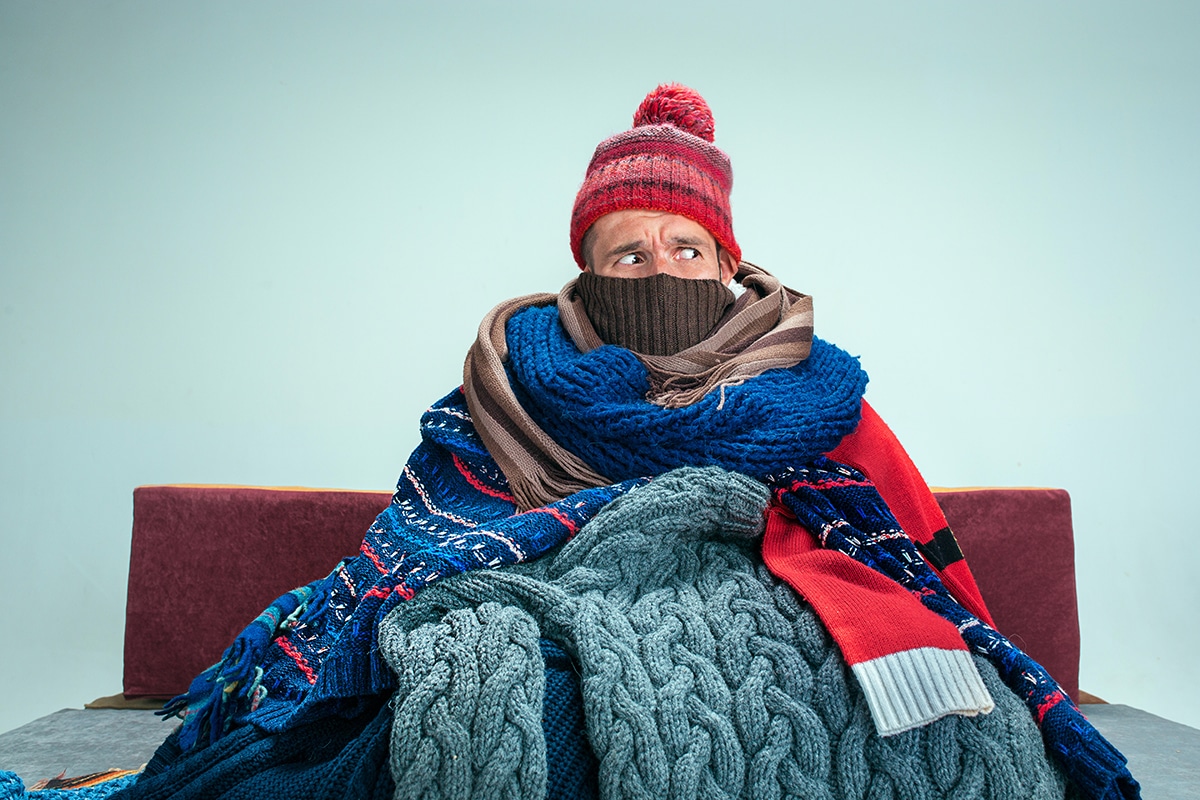How Cold Does It Have To Be For to your HVAC to Turn on the Heat?
Here in the Tri-Cities, October usually ushers in autumn when it comes to cooler temperatures prevailing. It can still hover in the upper 70s and low 80s in September, but it can dip down into the upper 40s at night. Once October rolls around, the highs eventually begin to drop below 70 degrees.
You probably begin to eye your thermostat beginning in October as the mornings really get cold – often in the low 40s to upper 30s at night and staying in the 40s for quite a while in the mornings. Even the most warm-blooded among us likely look for the heat to come on in our homes by November, when the highs typically only reach the 50s and the lows drop into the 30s, and near freezing at night in the Tri-Cities.
But how cold should it be in your home before the furnace kicks on? Is there an ideal temperature in your house that signals for the heat to come on and warm your living spaces?
There may not be a consensus in your house as to what the right temperature is for triggering the heat to come on. But there are some aspects of your home that can affect when the furnace turns on. For example, it can depend on the insulation and or thermal mass you have surrounding your structure, as well as its location, the humidity, and how much sun your area receives.
The temperatures during the fall in the Tri-Cities can vary greatly from the early morning hours to mid-day. This can make it challenging to decide what temperature is appropriate for turning on your furnace.
Factors to Consider When Deciding How Cold It Should be to Turn on the Heat
It’s helpful to know that the World Health Organization (WHO) has established standards for healthy indoor temperatures. For example, WHO recommends a minimum indoor temperature of 64.4 degrees Fahrenheit, however, if you have children or seniors living in the home, 68.8 degrees is closer to the ideal temperature.
Keep in mind that the outdoor temperature outside should not be the main determining factor when it comes to turning on your furnace. Instead, evaluate the indoor air and how cold you feel. There are a number of factors that come into play that influence your indoor air temperature.
For example, a well-insulated house will remain warmer than one that is not. Also, energy-efficient windows and doors will help to maintain the air temperature in your home.
Personal Preference
If you like cold air, you could easily allow temperatures in your house to drop below the recommendations of WHO. In order to be more comfortable, you might layer yourself with more clothing. However, common sense says that when you are feeling rather cold, it is a good idea to turn on the furnace, before you start shivering.
Sleeping Temperatures
If you are like many of us, you adjust the temperature in your home at night right before going to bed. Medical experts tell us that we tend to sleep better at night when the air is somewhat cooler. You can also save on your energy bills by wrapping yourself with warm blankets in bed, allowing the temperature to drop in the home, but still remain comfortable.
Also consider, however, that if you have children or, especially seniors, in the home, you might keep the indoor air slightly warmer, even at night.
Why Your Heat Might Not be Turning On
If you feel chilly inside your home and the furnace does not come on, you can do some basic troubleshooting with your heating system.
Here are some possible scenarios for why your furnace isn’t coming on:
Humidity makes the air seem warmer. If the humidity has decreased, as it usually does in the fall, 70 degrees could feel colder now than it did a few weeks ago, or even several days back. Because the actual air temperature is warm, even though it feels cooler to you, the thermostat will not yet trigger the furnace to turn on yet.
Look at your thermostat setting. Is the heat on? If so, find out what temperature it is set at. It could need to be adjusted.
Another step you could take is changing your thermostat to a significantly lower temperature than you would normally have it at to see if that causes the furnace to turn on.
Have Your Furnace Maintenance by Apollo
Trust the certified and highly skilled technicians at Apollo Heating and Air Conditioning to get your furnace operating properly before winter weather arrives. We will thoroughly evaluate and test the various parts of your heating system to ensure it operates at maximum efficiency, which will save you money on your energy costs.
Look to Apollo Heating and Air Conditioning for Expert Maintenance of Your Furnace
Are you wondering which heating unit to buy? Maybe you’re not sure which heating system is right for your home.
Then let the talented technicians at Apollo guide you through the process to make sure you are absolutely satisfied that you have the perfect unit for your house.
Apollo is the Northwest leading provider for heating services for homes and businesses. We not only evaluate and help you control the comfort and quality of your home’s air, we can also offer solutions for managing your energy costs. Our maintenance service optimizes the efficiency of your system, while also reducing the likelihood of a breakdown, for one low price.
Learn more by contacting Apollo Heating and Air Conditioning! Call us at (509) 396-COLD (2653).



